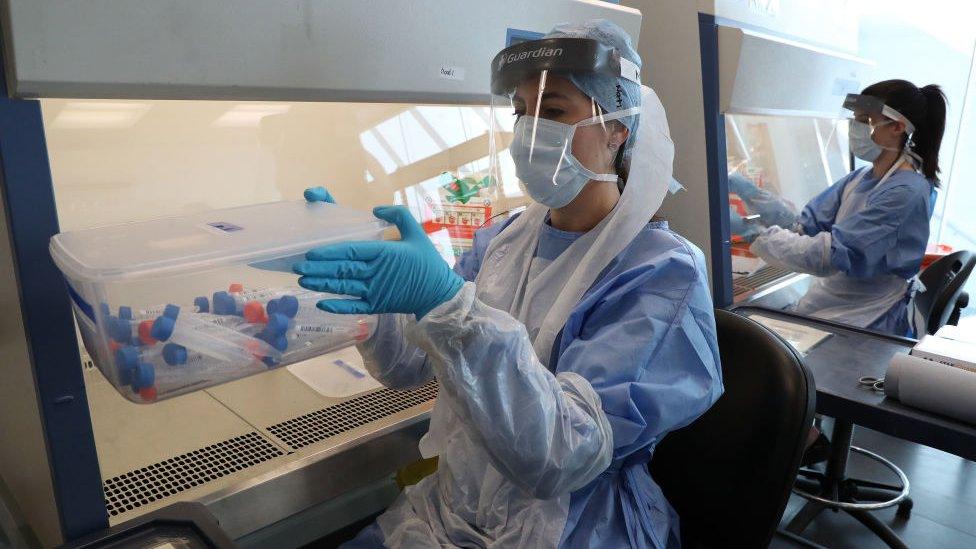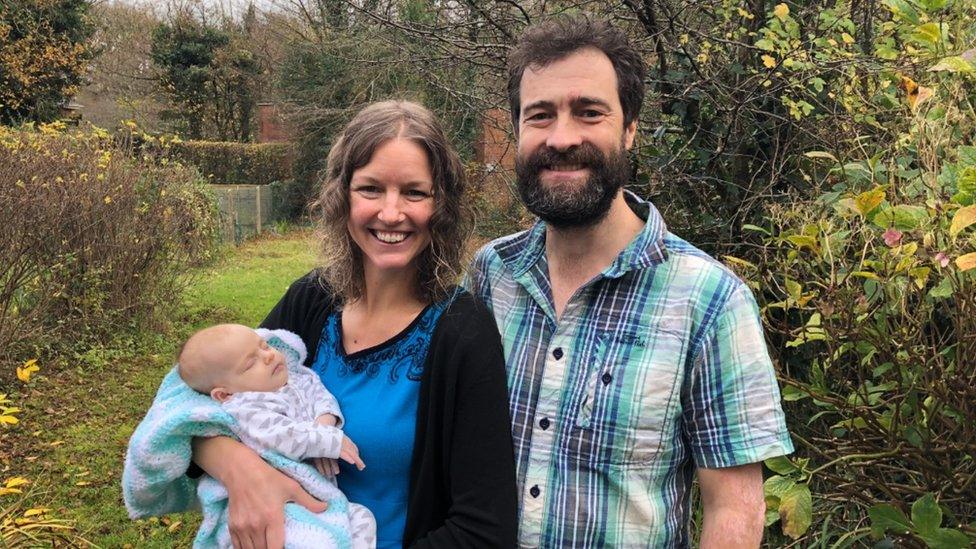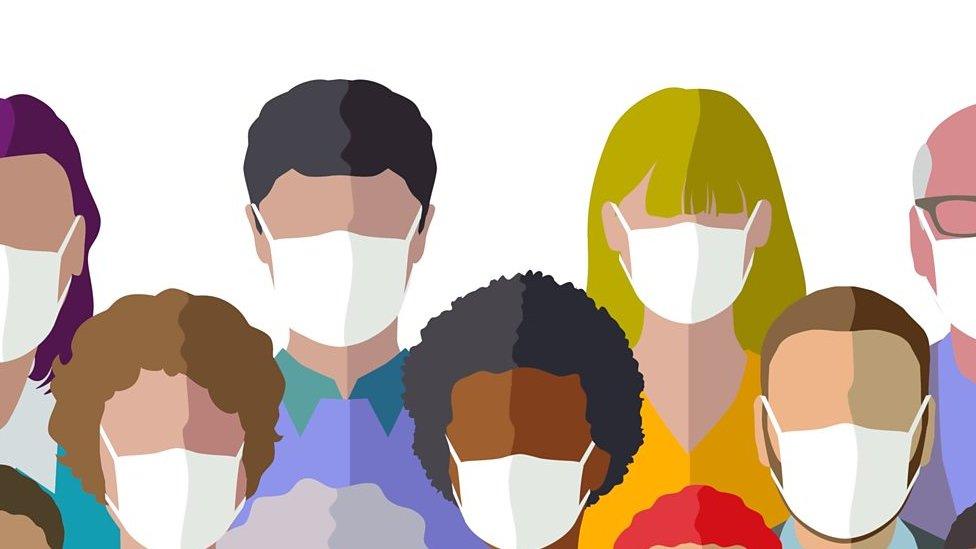Covid: Could microwaving face masks help with PPE stocks?
- Published

The study found "vital" PPE could be decontaminated
Scientists have found that some face masks can be microwaved to make them reusable as an emergency measure.
Cardiff University said some types of respirators could be effectively decontaminated in just 90 seconds by industrial-grade microwave ovens or using dry heat.
Researchers said it could allow the reuse of some PPE when stocks are low.
But the research team warned it was not a safe method to use at home.
Reporting their findings in the Journal of Hospital Infection, the study found that using an industrial-grade microwave oven and a baby bottle steriliser containing water, could dramatically increase the number of respirators available to staff.
Access to respirators and surgical face masks became restricted in many facilities earlier in the course of the pandemic.
Michael Pascoe, co-author of the study, from the school of pharmacy and pharmaceutical sciences, said "reusing existing PPE could buy vital time during emergencies and save lives", but it was important decontamination "did not compromise their function".
The team used dry heat sterilisation which does not involve any water and so was more compatible with items which are damaged by moisture, such as standard surgical face masks.
Exposure to 70C dry heat for 90 minutes was effective at decontaminating both surgical masks and respirators, they found.
After three dry heat cycles, both types of mask retained their filtering properties.
The decontaminated masks were also exposed to staphylococcus aureus, a bacterial species highly prevalent in human airways which can cause soft tissue infections and sepsis, to test their integrity.
Both methods effectively reduced the number of bacteria on masks to a safe level.
Can you make facemasks at home?
However, the authors stressed it was not a method that can be recreated safely and effectively at home.
Adrian Porch, from the university's school of engineering, said: "Domestic microwave ovens typically have much lower power, around 800W, and use rotating turntables rather than a rotating antenna.
"Significantly longer exposure times would be needed to achieve similar results and it is unknown how this would affect the functioning of the mask.
"Masks which contain thin wires can even catch fire when placed in a microwave."
- Published25 November 2020

- Published23 July 2020
